Get a glimpse of
A Day in the Life
Eastern Uganda
Our Mothers
It is hard to imagine the difficulties of a day in the life of women in Uganda with immense domestic responsibilities from dawn until dusk and the weight of supporting a family. But for the women in our organization and throughout Uganda, this is the reality of their every day. The Mothers of Good Hope is comprised of over 70 women based in the Budeka, Butebo, and Pallisa districts of Eastern Uganda. Though many of the mothers in our organization are married with children, most women in Uganda are single mothers as their husbands leave once the responsibilities of the household become to burdensome. It is commonly seen for these men to run away from home to go stay with a concubine who will not demand from him the things a family may require. The responsibilities of the household are left for the mother to carry alone, including raising and providing for the children. As is custom in Uganda, once a woman is married, her family is unable to accept her back into the family and support her even if the husband leaves.
As a result of the overwhelming stress and duties that are left to this woman, sometimes as young as 13 years old as we see in our organization, children may become neglected and take to the streets to try and take care of themselves. Mothers of Good Hope was sprung from The Pallisa Children’s Concern Project who’s aim is to provide and care for the children of these districts. However, we saw a greater need to direct our efforts towards the mothers of these children as we believe that by taking care of and helping the mother provide for her family, we are in turn helping the children as well. If the mothers have the time and resources to raise and support their children, this will protect them from the harsh reality of living on the street.
Meet a few of our Mothers



Where we live
Eastern Uganda records the highest levels of poverty in the country with numbers increasing each year. Half our country’s population is under the age of 15 which means that many of the most poverty stricken people are the children. Children are seen living on the street without shoes on their feet or food in their bellies. These children usually come from homes where their mothers are unable to provide for them.
COVID-19 IMPACT
Following the outbreak of COVID-19, Uganda put some of the harshest measures in place seen few other places on the African continent.
In March 2020, before a single case was registered in Uganda, the government closed all of their borders including air, land and sea.
The military enforced the measures and closures of all schools, churches, and shops very strictly.
Due to these closures and the already delicate economy and poverty levels of the Ugandan people, it is estimated that poverty numbers, according to the national poverty line, could increase by 2.6 million people

Impact on our mothers
With severe lockdowns, restriction of movement, and closure of all establishments, women and girls became very susceptible to pregnancies. Young girls are kept home and are no longer able to attend school. This resulted in thousands of girls becoming pregnant as the men are bored with no work to occupy them. We see girls as young as 13 in our organization alone who became mothers much too early because of the pandemic and resulting lockdowns. Babies having babies of their own that they must learn to take care of, before they even learn how to take care of themselves.

Produce markets line the streets where locals come to buy and sell their crops.

Boar holes where locals gather with buckets to collect water for drinking and washing.

Mbale City has indoor markets where you can shop for produce, spices, and handmade clothing.

 Donate
Donate








